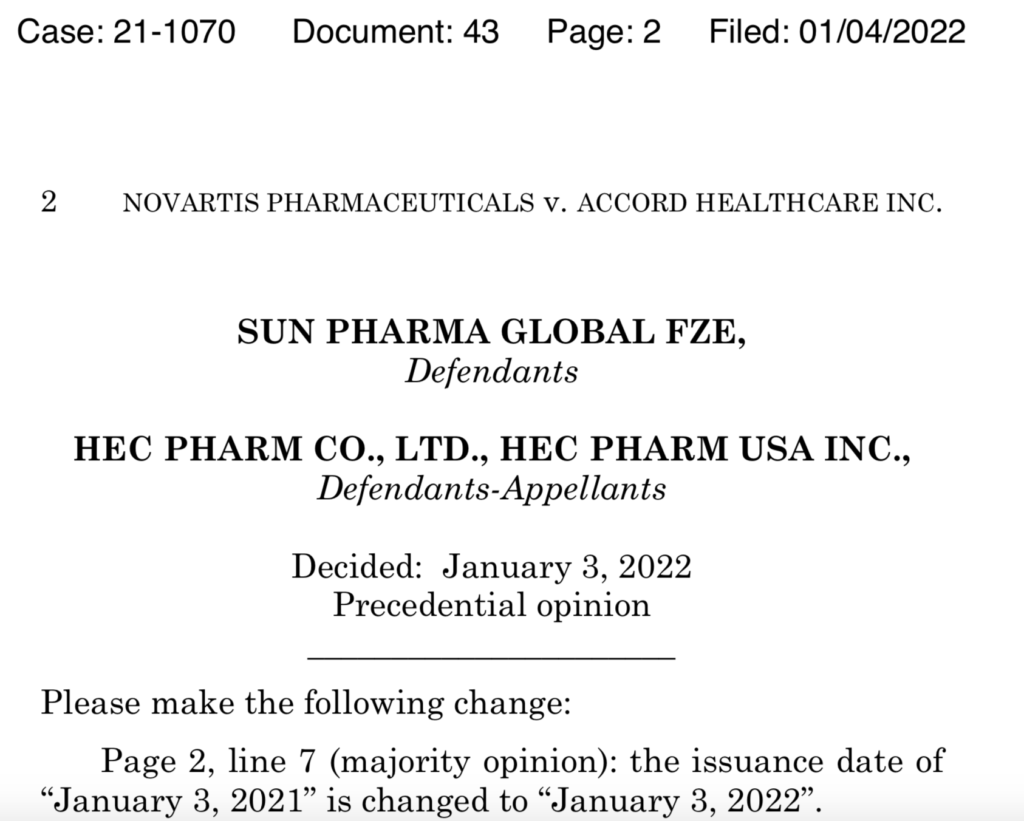by Bill Vobach
The quote for the day comes from the recent Moore/Lourie/Dyk opinion in Mentone Solutions LLC v. DIGI International, Inc. The panel reversed Judge Stark of the District of Delaware with respect to his ruling of patent ineligibility.
Judge Moore writing for the court noted:
The district court held that claim 5 was directed to the abstract idea of “receiving a USF and transmitting data during the appropriate timeslots.” J.A. 7 We do not agree. The district court’s formulation of the abstract idea appears to be a high-level description of how USFs operate in mobile stations using extended bandwidth allocation generally. See ‘413 patent at 1:67-2:8. However, the claimed invention departs from this conventional use through a shifted USF, which breaks the fixed relationship between USFs in a downlink slot and the availability for transmission in the corresponding uplink slot. The district court’s abstract idea fails to mention a shifted USF, nor does it capture the receipt of two PDCH assignments that permit monitoring and detecting the PDCHs for a shifted USF and transmission based thereon. Accordingly, it is untethered to the invention as claimed.
MENTONE SOLUTIONS LLC v. DIGI INTERNATIONAL INC., No. 2021-1202 (Fed. Cir. Nov. 15, 2021)(slip op. at 13)(emphasis added).
This analysis strikes me as an important reminder to be wary of overzealous generalizations of claim language as purportedly being abstract ideas. And, it reinforces the court’s analyses in Visual Memory LLC v. Nvidia Corp., 867 F.3d 1253 (Fed. Cir. 2017) and ENFISH, LLC v. Microsoft Corp., 822 F.3d 1327 (Fed. Cir. 2016):
At the same time, we must not express the basic concept of the claim in a way that is “untethered from the language of the claims.” Enfish, 822 F.3d at 1337. When we assess what the claims are directed to, we must do so at the same level of generality or abstraction expressed in the claims themselves. Id.
Visual Memory LLC v. Nvidia Corp., 867 F.3d 1253, 1263 (Fed. Cir. 2017).
However, describing the claims at such a high level of abstraction and untethered from the language of the claims all but ensures that the exceptions to § 101 swallow the rule. See Alice, 134 S.Ct. at 2354 (noting that “we tread carefully in construing this exclusionary principle [of laws of nature, natural phenomena, and abstract ideas] lest it swallow all of patent law”);
ENFISH, LLC v. Microsoft Corp., 822 F.3d 1327, 1337 (Fed. Cir. 2016).
On a different point, the panel once again treated speed as an important factor in the §101 analysis. The court wrote:
Through this shifted USF, the invention purports to “reduce restrictions affecting extended dynamic allocation with minimal effect on the existing prescript.” Id. at 2:44-46. It allows the mobile station to “transmit up to its physical slot limit.” Id. at 5:17-18. The present invention increases the capacity of networks to communicate data by allowing the network to use timeslots for transmission which, according to the patent, were not available in the prior art. The result is a system capable of a higher rate of data transmission.
MENTONE SOLUTIONS LLC v. DIGI INTERNATIONAL INC., No. 2021-1202 (Fed. Cir. Nov. 15, 2021)(slip op. at 5-6)(emphasis added).
Like the claim in Packet Intelligence, claim 5 purports to solve a challenge unique to computer networks, or, more specifically, certain mobile stations using extended bandwidth allocation in a network: reducing restrictions to enable additional multislot configurations. It increases the rate of data transmission by enabling the use of timeslots for transmission that were not previously available.
MENTONE SOLUTIONS LLC v. DIGI INTERNATIONAL INC., No. 2021-1202 (Fed. Cir. Nov. 15, 2021)(slip op. at 12)(emphasis added).
I will add this case to my earlier post about the disparate treatment of speed for purposes of §103 and §101.
